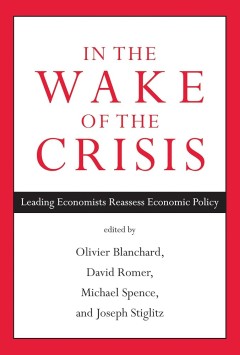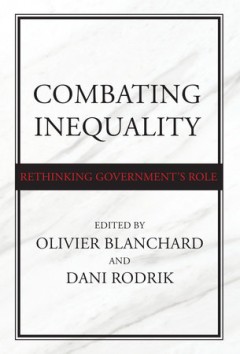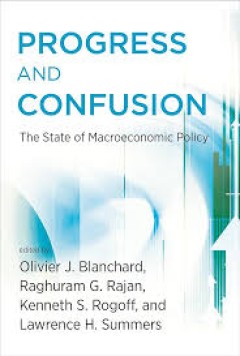Filter by

In the Wake of the Crisis: Leading Economists Reassess Economic Policy
Conference proceedings.In 2011, the International Monetary Fund invited prominent economists and economic policy makers to consider the brave new world of the post-crisis global economy. The result is a book that captures the state of macroeconomic thinking at a transformational moment. The crisis and the weak recovery that has followed raise fundamental questions concerning macroeconomics and …
- Edition
- -
- ISBN/ISSN
- 9780262301831
- Collation
- 1 online resource (x, 239 pages) :illustrations
- Series Title
- -
- Call Number
- -

What Have We Learned?: Macroeconomic Policy after the Crisis
Since 2008, economic policymakers and researchers have occupied a brave new economic world. Previous consensuses have been upended, former assumptions have been cast into doubt, and new approaches have yet to stand the test of time. Policymakers have been forced to improvise and researchers to rethink basic theory. George Akerlof, Nobel Laureate and one of this volume's editors, compares the cr…
- Edition
- -
- ISBN/ISSN
- 9780262323444
- Collation
- 1 online resource (vii, 359 pages) :illustrations
- Series Title
- -
- Call Number
- -

Combating inequality :rethinking government's role
"Edited collection with contributions from notable economists on policy solutions to the problem of economic inequality in advanced economies"--OCLC-licensed vendor bibliographic record.
- Edition
- -
- ISBN/ISSN
- 0262363534
- Collation
- 1 online resource.
- Series Title
- -
- Call Number
- -

Progress and confusion the state of macroeconomic policy
Leading economists consider the shape and future of economic policy: Will it resume the pre-crisis consensus or contend with the post-crisis "new normal"? Have we made progress with addressing the major issues or does confusion remain in today's economic environment? Chapters address topics that range from the measurement of systemic risk to foreign exchange intervention.OCLC-licensed vendor bi…
- Edition
- -
- ISBN/ISSN
- 9780262333450
- Collation
- 1 online resource (vii, 304 pages) :illustrations
- Series Title
- -
- Call Number
- -

Fiscal policy under low interest rates
Rethinking fiscal and monetary policy in an economic environment of high debt and low interest rates. Policy makers in advanced economies find themselves in an unusual fiscal environment: debt ratios are historically high, while real interest rates are extremely low. Such a fundamental change, which seems likely to last, calls for a rethinking of the role of fiscal and monetary policy -- and th…
- Edition
- -
- ISBN/ISSN
- 9780262372961
- Collation
- 1 online resource (192 pages).
- Series Title
- -
- Call Number
- -

Evolution or revolution :rethinking macroeconomics after the Great recession
Leading economists discuss post--financial crisis policy dilemmas, including the dangers of complacency in a period of relative stability. The Great Depression led to the Keynesian revolution and dramatic shifts in macroeconomic theory and macroeconomic policy. Similarly, the stagflation of the 1970s led to the adoption of the natural rate hypothesis and to a major reassessment of the role of m…
- Edition
- -
- ISBN/ISSN
- 9780262351270
- Collation
- 1 online resource (392 pages).
- Series Title
- -
- Call Number
- -
 Computer Science, Information & General Works
Computer Science, Information & General Works  Philosophy & Psychology
Philosophy & Psychology  Religion
Religion  Social Sciences
Social Sciences  Language
Language  Pure Science
Pure Science  Applied Sciences
Applied Sciences  Art & Recreation
Art & Recreation  Literature
Literature  History & Geography
History & Geography